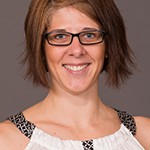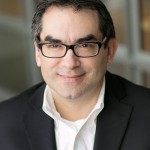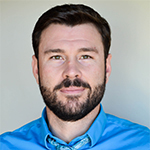 The University of Minnesota School Psychology program welcomes Dr. Clayton Cook to its prestigious team of professors and researchers.
The University of Minnesota School Psychology program welcomes Dr. Clayton Cook to its prestigious team of professors and researchers.
Dr. Cook received his Ph.D. from the University of California – Riverside. His dissertation explored the link between behavior intervention plan quality and student outcomes under real world conditions. Before pursuing his doctorate, Dr. Cook worked as a paraprofessional for students with emotional and behavioral disorders. We sat down with Dr. Cook and asked him a few questions about what brought him to school psychology and the University of Minnesota.
Why did you choose the field of school psychology? Dr. Cook’s interest in the field of school psychology came about by coincidence. “I was floundering in undergrad until I took a developmental psychology class with a professor with a 30-year longitudinal study, he says. “It was the first time I ever participated in research, and I really liked the experience.” He continues, “That professor became my mentor; he kept me on track.”
During his high school years, Dr. Cook struggled with his behavior in school and became familiar with how schools were not equipped to handle particular types of students. However, he recalls, “It wasn’t until I started graduate school that I fully understood the role school psychologists play and the value of working in a school and applying psychological principles to enhance the quality of supports for all students. School is the great equalizer.”
What brought you to the University of Minnesota? “Family is one of the main reasons I chose the University of Minnesota,” he says. “My wife’s family is in the Twin Cities, and we wanted to be closer, especially for our children. Plus, Minneapolis is affordable and has excellent resources for education.”
The school psychology program’s reputation was also a determining factor. “The school psychology program is one of the top three in the country and, as a researcher, becoming a faculty member in this University’s program is an indicator of success.” Dr. Cook adds he is a “relationship person” and wants to embed himself in the community by building partnerships with community members, faculty, and students. “I’m very excited to meet people and get involved locally,” he says.
What is the main focus of your research? “My main focus is promoting mental health-related practices in schools, which takes on a variety of different forms, including universal prevention, screening measurement and interventions informed by different theories,” he says.
What research projects are you working on now? Dr. Cook is excited about developing a sleep curriculum, a foundational component to children’s wellbeing. “Sleep is something that you don’t notice when it’s going well, but if it’s difficult to sleep, problems arise. Sleep impacts everything: learning, mental health status, social relationships, practicing self-control and making choices for healthy living. Sleep alone doesn’t make children learn or maintain good mental health, but it is essential,” he says.
Dr. Cook is also taking an innovative approach to preventing school violence. “In partnership with colleagues from the University of Washington, he is challenging the traditional disease- or deficit-based approach to working with youth who are at-risk for violence, which typically consists of detecting at-risk students and intervening with them to be less angry or aggressive. This can be a stigmatizing process for many youth,” he says.
Instead, Dr. Cook and his colleagues developed and are testing a strength-based intervention, Student Enrichment Engagement Program. “The children who participate don’t know they’ve been identified and are receiving an intervention for an identified problem. The students are not told they have been identified as at-risk and they receive the intervention along with typical peers, never being removed from class or isolated from others.” The theme, he says, is to change how kids experience, interpret, and feel at school. “It triggers changes in how they perceive themselves as a student, how they feel, and creates an ‘aha’ moment by looking at one’s self differently. It is not a skill acquired, so it can potentially be quite brief.”
Dr. Cook is also excited about research that involves improving students’ sense of belonging through their positive interactions and relationships with teachers. He developed the Establish-Maintain-Restore approach to cultivating strong teacher-student relationships. Dr. Cook noted, “Relationships are foundational for learning and social-emotional wellbeing. Students who lack a sense of belonging and connection to others in school are often those who are struggling the most.”
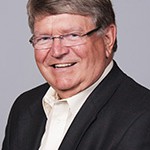 The Department of educational psychology’s emeritus faculty member James Ysseldyke, Ph.D., received the 2016 Lifetime Achievement Award from the National Association of School Psychologists. The NASP Lifetime Achievement Award recognizes an outstanding school psychologist who has had a national impact on the field and has dedicated his/her professional life to the development and improvement of school psychology. Dr. Ysseldyke joined the department and school psychology program in 1975 and was program coordinator from 1988 – 1993.
The Department of educational psychology’s emeritus faculty member James Ysseldyke, Ph.D., received the 2016 Lifetime Achievement Award from the National Association of School Psychologists. The NASP Lifetime Achievement Award recognizes an outstanding school psychologist who has had a national impact on the field and has dedicated his/her professional life to the development and improvement of school psychology. Dr. Ysseldyke joined the department and school psychology program in 1975 and was program coordinator from 1988 – 1993. 

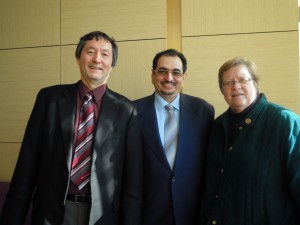
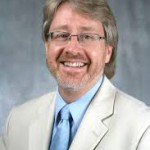
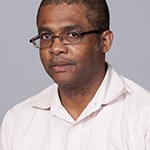

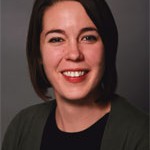 practice skills learned in the classroom. I believe that students build their love for school psychology by working in the field and learning from supervisors. Without high-quality field experiences, we would not be able to provide such an effective training program.
practice skills learned in the classroom. I believe that students build their love for school psychology by working in the field and learning from supervisors. Without high-quality field experiences, we would not be able to provide such an effective training program. 




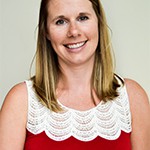
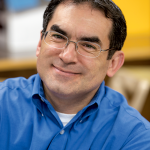
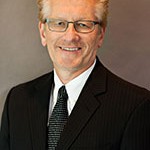
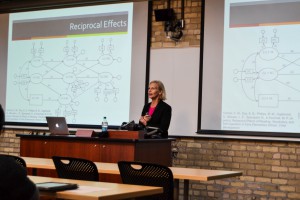 ge and literacy development.
ge and literacy development. 